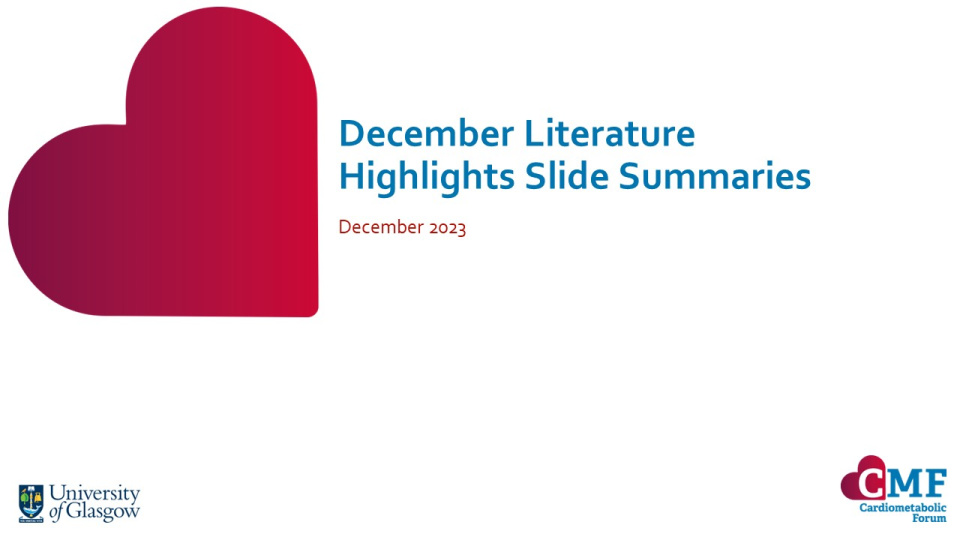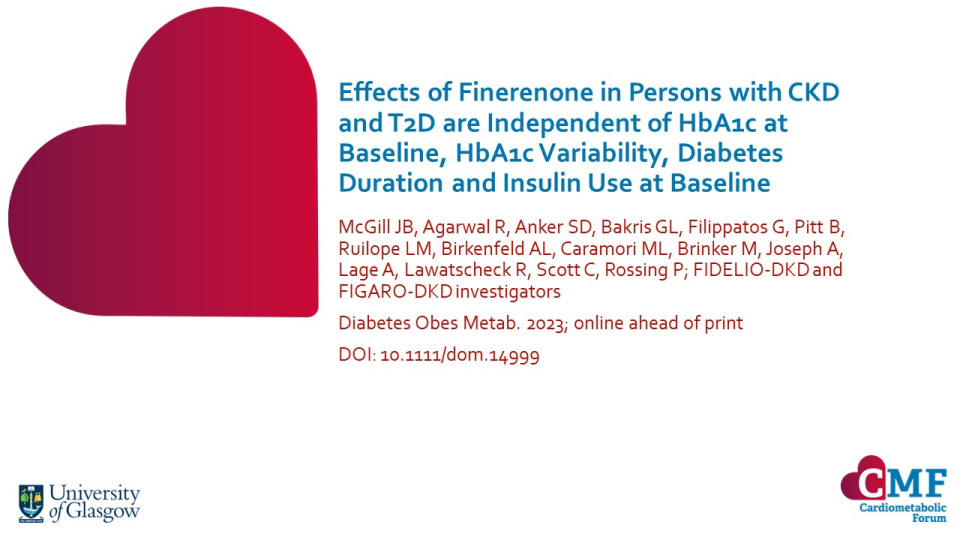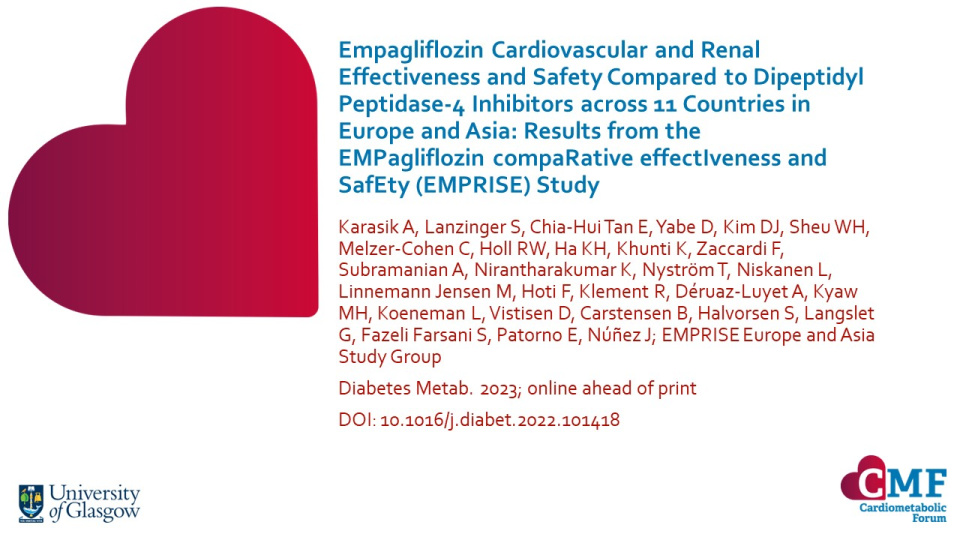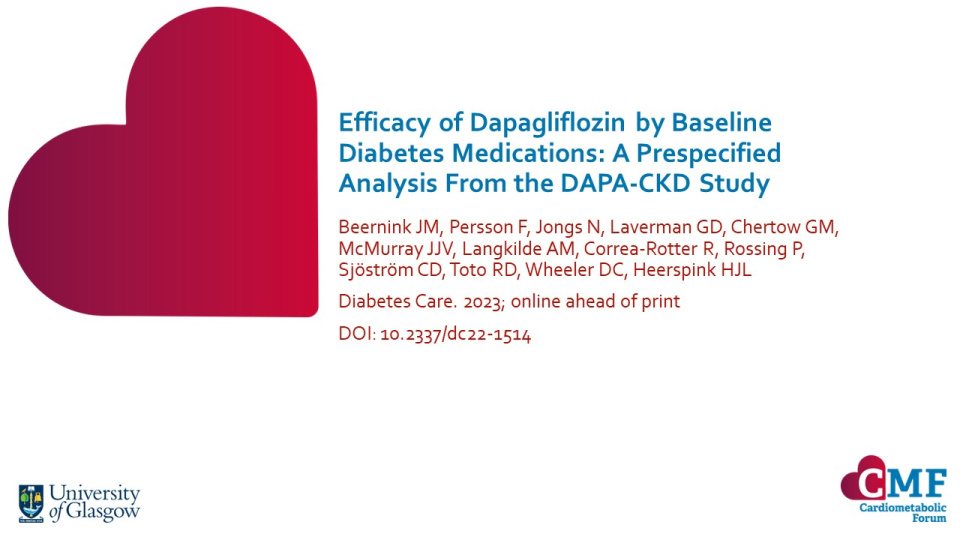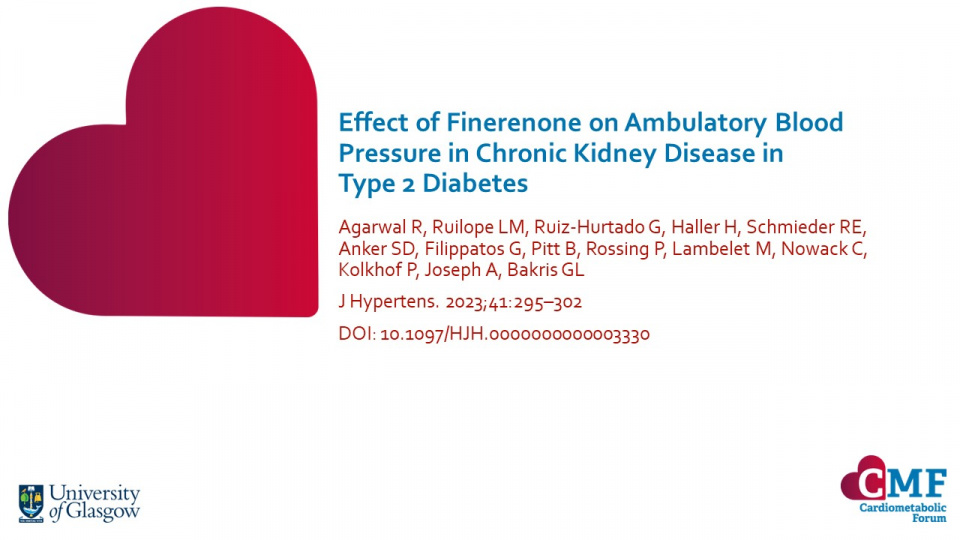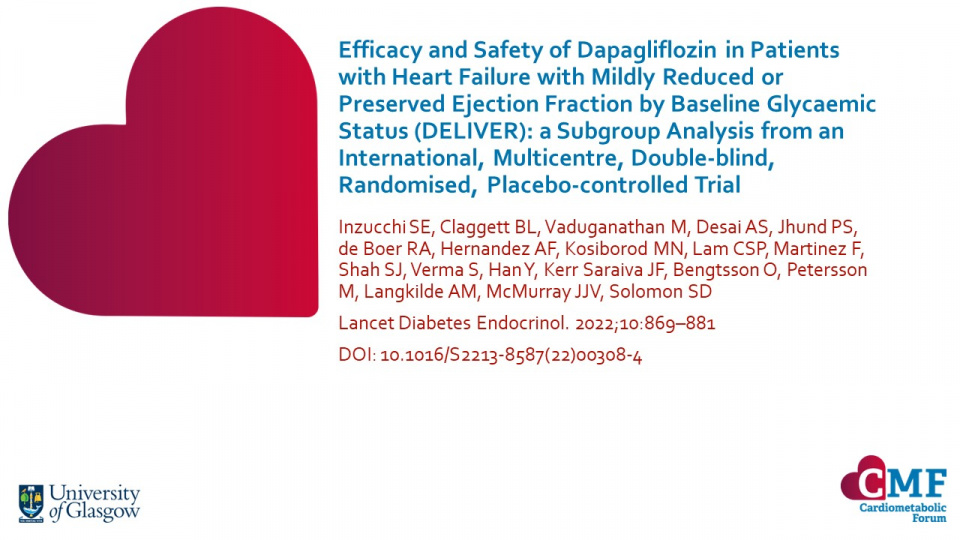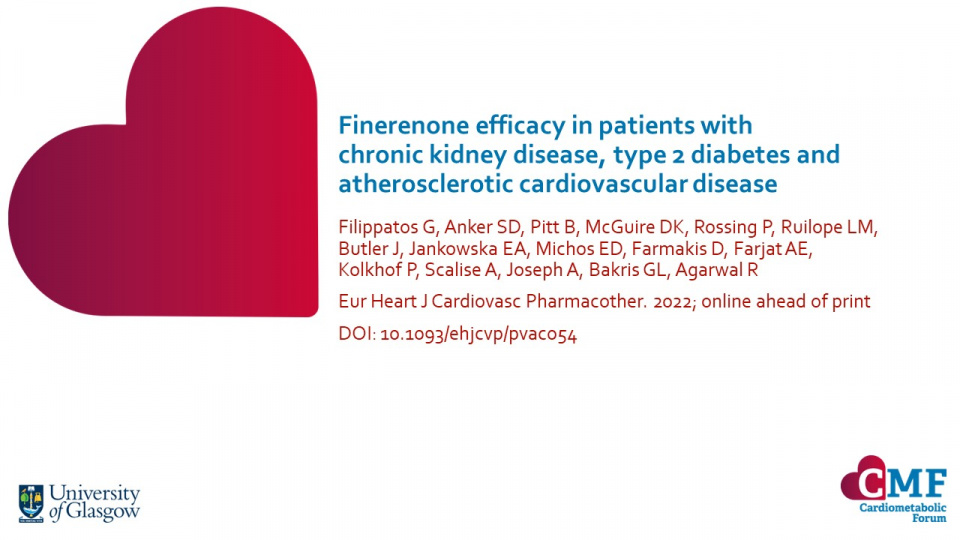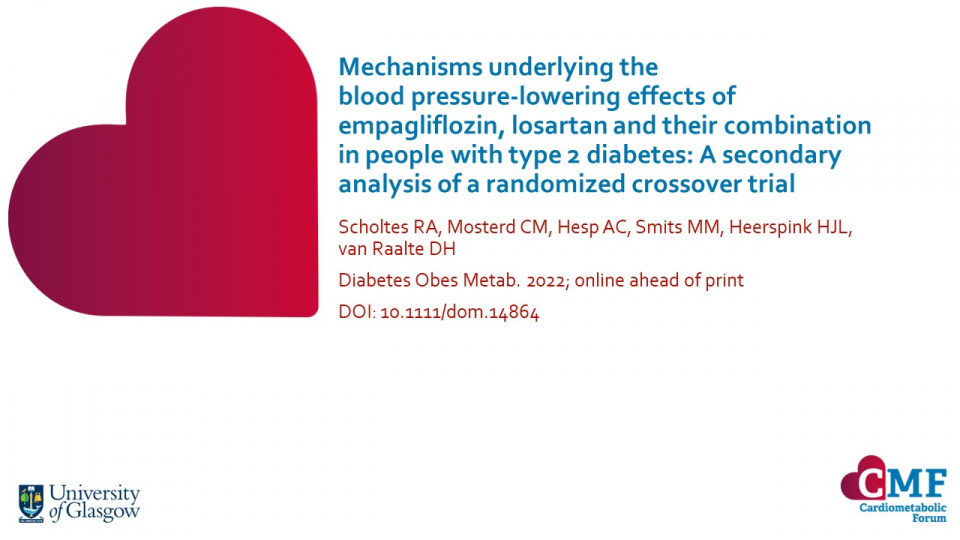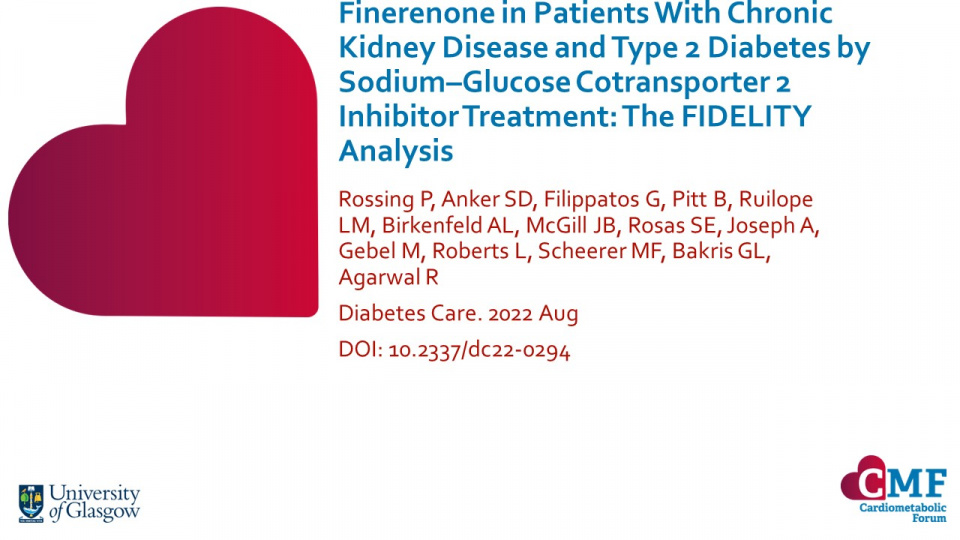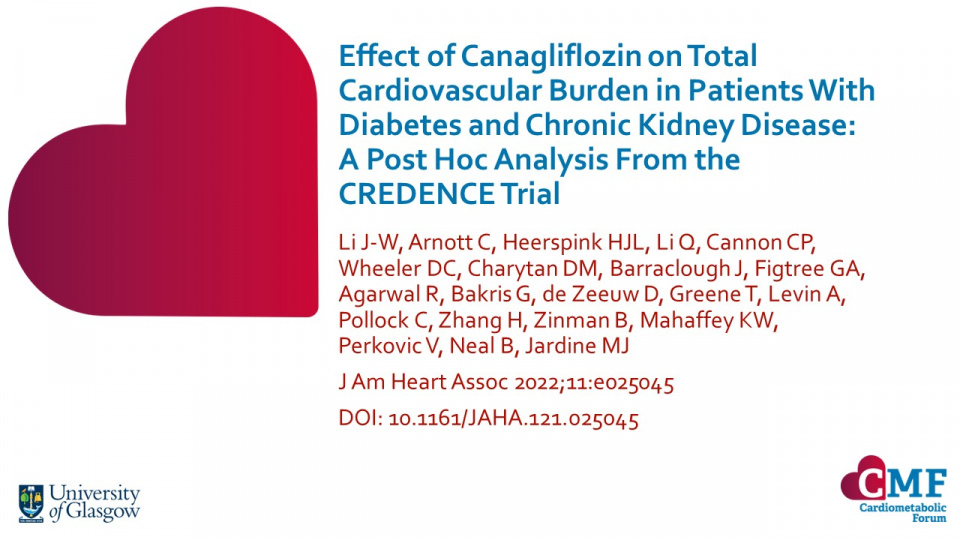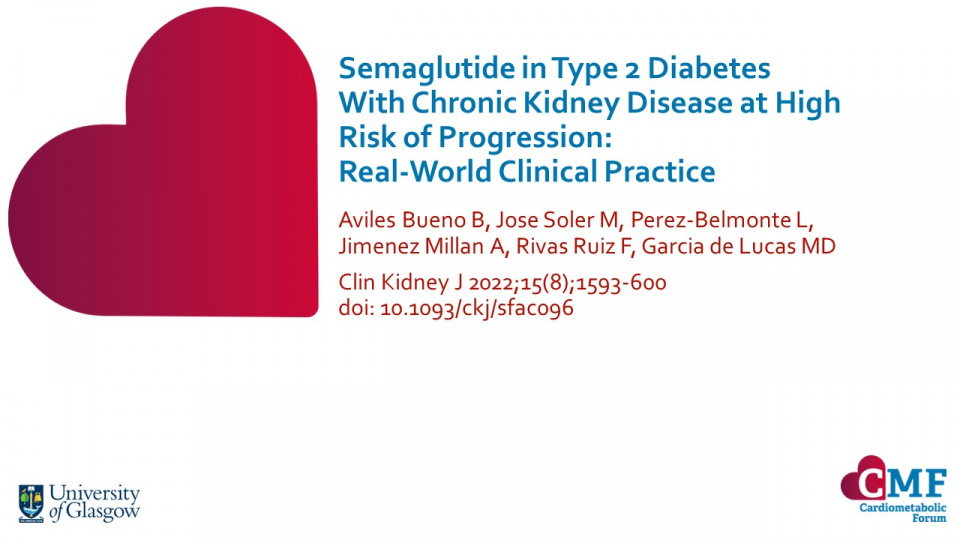Publications
Stay up to date with our literature reviews which are curated by experts to feature the most important publications released each month. Explore our publications for access to concise summary slides for your own use.
Effects of Finerenone in Persons with CKD and T2D are Independent of HbA1c at Baseline, HbA1c Variability, Diabetes Duration and Insulin Use at Baseline
Diabetes Obes Metab. 2023; online ahead of print DOI: 10.1111/dom.14999
Given the role of HbA1c, diabetes duration and insulin use in determining morbidity and mortality of CKD in T2D, it is important to investigate whether these factors modify the efficacy and safety of therapies that mitigate the cardiorenal impact of CKD in T2D. This post hoc analysis of the FIDELITY database evaluated the effect of finerenone by baseline HbA1c, HbA1c variability, diabetes duration and baseline insulin use on cardiorenal outcomes and diabetes progression.
Keywords:
Empagliflozin Cardiovascular and Renal Effectiveness and Safety Compared to Dipeptidyl Peptidase-4 Inhibitors across 11 Countries in Europe and Asia: Results from the EMPagliflozin compaRative effectIveness and SafEty (EMPRISE) Study
Diabetes Metab. 2023; online ahead of print
Previously, the real-world EMPRISE US study found that empagliflozin initiation was associated with a lower risk of hospitalisation for HF, all-cause mortality and CV events when compared with DPP-4i.
Keywords:
Efficacy of Dapagliflozin by Baseline Diabetes Medications: A Prespecified Analysis From the DAPA-CKD Study
Diabetes Care. 2023; online ahead of print DOI: 10.2337/dc22-1514
Achieving optimal glucose control can be challenging in patients with T2D and CKD because impaired kidney function hampers the use of several oral or injectable glucose-lowering therapies (GLTs) and increases the likelihood of hypoglycaemia. This prespecified analysis from the DAPA-CKD trial evaluated whether the benefits of dapagliflozin in patients with T2D and CKD varied by background GLT number or class.
Keywords:
Effect of Finerenone on Ambulatory Blood Pressure in Chronic Kidney Disease in Type 2 Diabetes
J Hypertens. 2023;41:295–302 DOI: 10.1097/HJH.0000000000003330
It has been postulated that the effects of finerenone on cardiorenal outcomes may be mediated primarily via non-haemodynamic pathways, but office BP measurements are insufficient to fully assess haemodynamic effects. A substudy of the ARTS-DN phase IIb trial was conducted to obtain further insights into the mechanism of action of finerenone by analysing 24-h ambulatory BP in patients with CKD and T2D.
Keywords:
Efficacy and Safety of Dapagliflozin in Patients with Heart Failure with Mildly Reduced or Preserved Ejection Fraction by Baseline Glycaemic Status (DELIVER): a Subgroup Analysis from an International, Multicentre, Double-blind, Randomised, Placebo-controlled Trial
Lancet Diabetes Endocrinol. 2022;10:869–881 DOI: 10.1016/S2213-8587(22)00308-4
Dapagliflozin was shown to be highly efficacious in patients with HFmrEF and HFpEF in the DELIVER trial. However, whether the benefits of dapagliflozin are observed across glycaemia categories has not been previously reported.
Keywords:
Finerenone efficacy in patients with chronic kidney disease, type 2 diabetes and atherosclerotic cardiovascular disease
Eur Heart J Cardiovasc Pharmacother. 2022; online ahead of print DOI: 10.1093/ehjcvp/pvac054
Finerenone reduced the risk of CV and kidney outcomes consistently across the spectrum of CKD in patients with T2D, irrespective of prevalent ASCVD.
Mechanisms underlying the blood pressure-lowering effects of empagliflozin, losartan and their combination in people with type 2 diabetes: A secondary analysis of a randomized crossover trial
Diabetes Obes Metab. 2022; online ahead of print DOI: 10.1111/dom.14864
This prespecified analysis of the RECOLAR study investigated the effects of the sodium-glucose co-transporter-2 inhibitor (SGLT2i), empagliflozin, the angiotensin receptor blocker (ARB), losartan, and their combination on blood-pressure lowering, while studying the mechanisms potentially involved.
Finerenone in Patients With Chronic Kidney Disease and Type 2 Diabetes by Sodium–Glucose Cotransporter 2 Inhibitor Treatment: The FIDELITY Analysis
Diabetes Care 2022; online ahead of print doi: 10.2337/dc22-0294
In the FIDELITY analysis, finerenone reduced the risk of cardiovascular and kidney outcomes compared with placebo. Concomitant treatment with a sodium-glucose cotransporter-2 inhibitor (SGLT2i) did not modify the observed benefits.
FIDELITY pooled populations from the FIDELIO-DKD and FIGARO-DKD studies in order to examine the effect of finerenone and interaction with SGLT2i use on prespecified outcomes in patients with chronic kidney disease (CKD) and type 2 diabetes (T2D). In both trial, use of SGLT2i was permitted at baseline, as was initiation of SGLT2i at any time during the trial.
Effect of Canagliflozin on Total Cardiovascular Burden in Patients With Diabetes and Chronic Kidney Disease: A Post Hoc Analysis From the CREDENCE Trial
J Am Heart Assoc 2022;11:e025045 DOI: 10.1161/JAHA.121.025045
Cardiovascular disease is highly prevalent, and represents a major burden in patients with both T2D and CKD. In the CREDENCE trial, canagliflozin reduced the risk of first composite cardiovascular events; this post hoc analysis evaluated the effect on total (first and recurrent) events. During the trial, a total of 883 cardiovascular events occurred in 634 patients; 72% were first and 28% were subsequent events. Analysis showed canagliflozin reduced first and total cardiovascular events by 26% and 29%, respectively, with consistent results across patient subgroups and by baseline cardiovascular history.
These findings provide further support for the benefit of continuing canagliflozin therapy after an initial event to prevent recurrent CV events.
Semaglutide in Type 2 Diabetes With Chronic Kidney Disease at High Risk of Progression: Real-World Clinical Practice
Clin Kidney J 2022;15(8);1593-600 doi: 10.1093/ckj/sfac096
In this real-world study, patients with type 2 diabetes (T2D) and chronic kidney disease (CKD) treated with semaglutide significantly improved glycaemic control and decreased weight.

